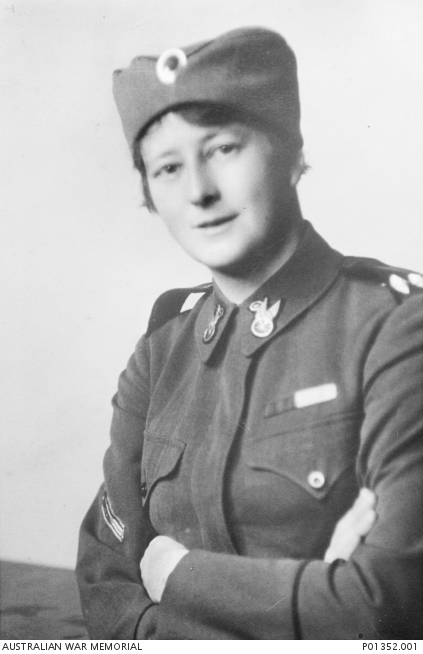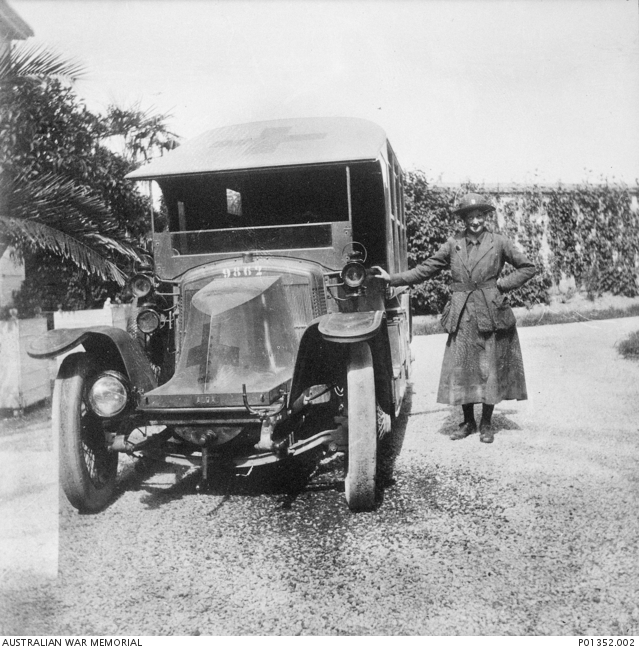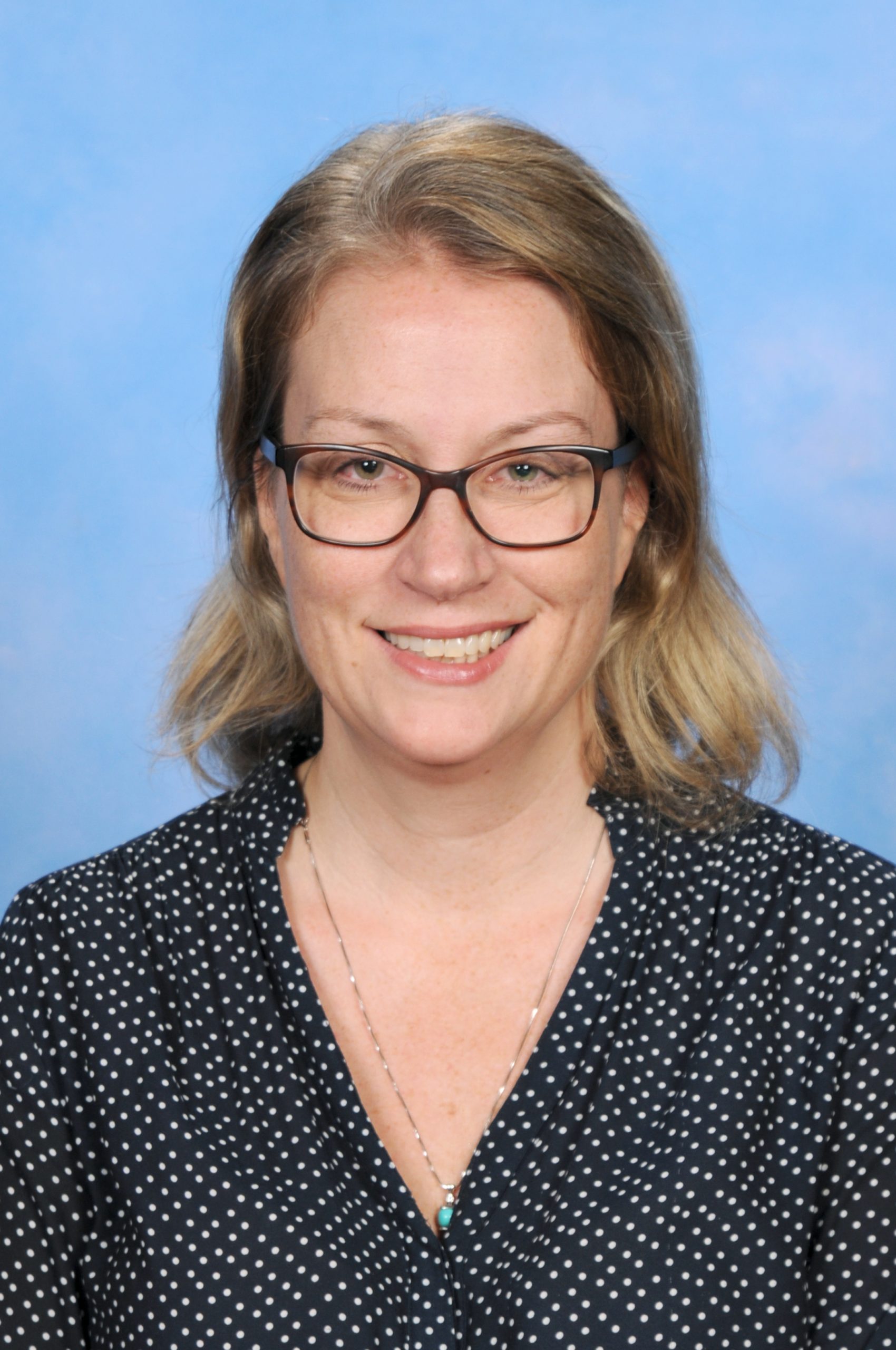Posted by Kambala
On ANZAC Day, we commemorate the lives of the courageous men and women who so gallantly protected Australia. One such veteran was Kambala Old Girl, Olive King. Born in Sydney on 30 June 1885 to parents Irene Isabella and Sir George Kelso King. Olive May Kelso King was a student at Kambala, along with her two older sisters. Records from the early 1900s are not complete in the Kambala Archive but there are two ledgers listing her as a pupil from 1902 to 1903. There is also a photo of Olive with fellow boarders from 1903.
Olive’s mother passed away when she was 15 and her father sent her to Europe where she attended both German and Swiss schools. Life and study in Europe enabled her to become fluent in French and German, as well as a skilled mountain climber and skier. Susanna De Vries, the author of Heroic Australian Women in War states Olive was born “…in a period when intelligence and independence were not valued in young women. Instead, marriage and motherhood were seen as their destiny”.[1]
In 1914, Olive moved to England to help her sister Sunny, who had just given birth. That same year, World War I began. Olive wanted to do her part and with her father’s blessing, she went to Belgium, purchased an ambulance (affectionately nicknamed Ella the Elephant) and joined the Allied Fields Ambulance Corps (AFAC). Only a few months in, she and several other women were suspected of being spies by German Officers. Olive’s fluency in German paid off—she convinced the officers they were not spies. Thereafter, Olive promised her father she would find a safer way to be part of the war effort.

The British Army would not allow women to register so she joined the Scottish Women’s Hospitals for Foreign Service. In 1916, Olive joined the Serbian Army as a driver attached to the medical headquarters at Salonika and helped the injured, civilians, transported supplies through war-torn areas and did mechanical maintenance on Ella.
Olive King was awarded the Serbian Silver Medal for Bravery and the gold medal for zealous conduct for her efforts.[2] The Kambala Chronicle from 1917 writes, “Congratulations to Olive Kelso King, who has been working in Serbia. She has been awarded a military distinction for hard and brave work.”
In May 1918, Olive asked her father to help raise money in Sydney to set up canteens for the Serbian soldiers who were suffering greatly. Mr King raised £10,000 which enabled seventeen canteens to be opened, each selling food, blankets and clothing at cost. The Sunday Times, from 4 January 1920 states, “Miss Olive Kelso King, who will be remembered as having done such excellent transport work in Serbia during the war and is still working for that suffering. She is travelling with relief canteens and intends to continue until the need for it ends.”[3]
The war ended on 11 November 1918. Olive had risen to the rank of Sergeant and was released from the Serbian Army in April 1919. For her outstanding work during the war, Olive King was awarded the Samaritan Cross and the Order of St Sava (the latter given to her by King Alexander).

With her father’s health failing, Olive returned to Sydney in 1920. She took an unpaid position as State Secretary of the NSW Girls Guide association. A woman of her position in society was not allowed to take paid work and this organisation was important to her stepmother and father. There is reference to her speaking at both SCEGGS and Kambala in 1921 about the Girls Guide.
In 1939, World War II began and Olive was now 55. She attempted to join the Australian Army but was told she was too old. Never one to take no for an answer, she studied inspection at a Commonwealth Government aircraft school and became an examiner at de Havilland Aircraft from 1942 to 1944. In 1956, Olive May Kelso King moved to Melbourne and passed away on 1 November 1958.
About the Author

Laura Carmichael is the Archivist at Kambala. Prior to working at the School, she was the Director of Archives and Exhibitions at Richard Meier & Partners Architects. Laura was formerly the Curator of Exhibitions at the Morris Museum and curated exhibits in art, history and science. One of her career highlights was working as an Archives Assistant at the Tiffany & Co. archives where she worked with a phenomenal collection of jewels and historic documents.
[1] Vries, De Susanna, and Beverley Dunn. Heroic Australian Women in War. Unabridged, Bolinda Audio, 2013.
[2] King, Hazel. “King, Olive May (1885–1958).” Australian Dictionary of Biography, vol. 9, no. MUP, 1983, adb.anu.edu.au/biography/king-olive-may-6962.
[3] “Talk of the Town.” Sunday Times [Sydney, NSW], 4 Jan. 1920, trove.nla.gov.au/newspaper/article/120527358.
Located in Sydney’s eastern suburbs, Kambala is a vibrant day and boarding school for girls up to 18 years of age. To learn more, download our Prospectus, or contact Tracy Mulligan, Director of Enrolments on 02 9388 6844.